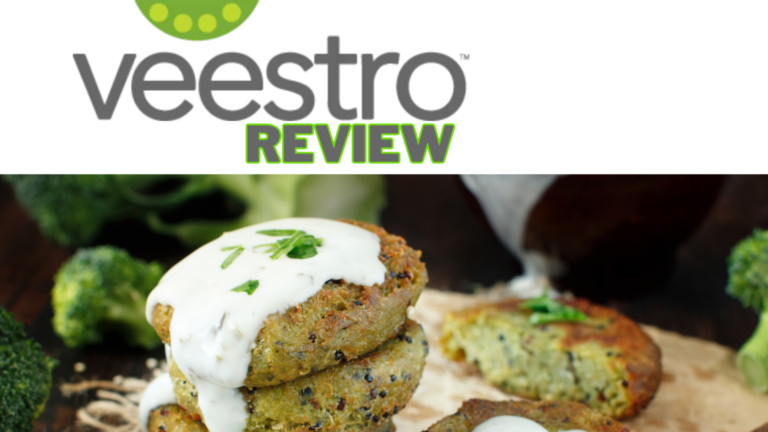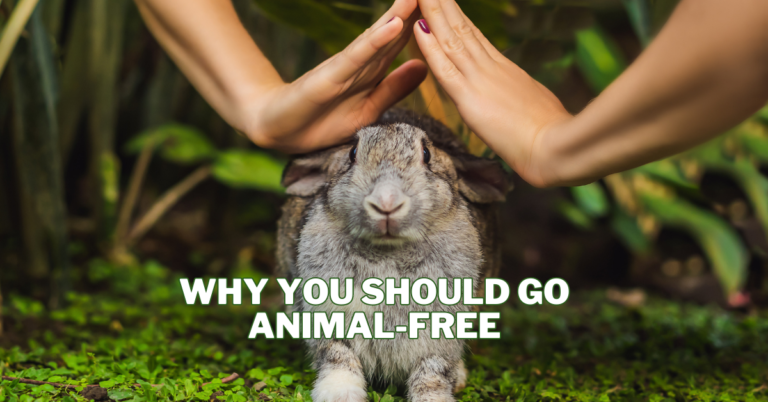Secrets Of Vegan Lifestyle Benefits
Secrets Of Vegan Lifestyle Benefits
Vegan diets are recognized to aid in weight loss. For starters, a vegan diet may help you maintain a healthy heart. Furthermore, this diet may offer some protection against cancer and type 2 diabetes.
Here are 18 benefits of a vegan diet that have been scientifically proven.
1. Nutrients Are More Abundant
You will eliminate meat and animal products if you switch to a vegan diet from a traditional Western diet.
This will inevitably lead to a greater reliance on other foods. In a whole-food vegan diet, whole grains, fruits, vegetables, beans, peas, nuts, and seeds are substitutes.
Because they make up a bigger proportion of a vegan diet than a conventional Western diet, these items contribute to a higher daily intake of certain key nutrients in a vegan diet than in a regular Western diet.
According to several research, vegan diets provide higher fiber, antioxidants, and beneficial plant components. Potassium, magnesium, folate, and vitamins A, C, and E also appear to be higher in them.
2. Improve Skin Health
A plant-based diet can help your skin stay healthy, improving your beauty routine. Many studies have linked dairy to skin issues such as acne.
Dairy products include growth hormones and are also treated with artificial hormones, which might disrupt the hormone system of the human body.
According to some experts, dairy might cause insulin levels to fluctuate, making acne more prevalent.
Several celebrities credit veganism for its youthful appearance. Ma, an American singer-songwriter, credits her “fountain of youth” to her vegan lifestyle.
Woody Harrelson, the 58-year-old actor, claimed his plant-based diet is “crucial” for his youthful appearance.
Paul McCartney, a 77-year-old rock, not only looks younger than he is but also completes his solo world tours, which see him play more than 30 songs per show throughout two and a half hours, on a vegan diet.
3. Help To Lose Weight
An increasing number of people are turning to plant-based diets to lose weight. This may be for a good reason.
According to many observational studies, vegans are smaller and have lower body mass indices (BMIs) than non-vegans.
According to several randomized controlled studies, vegan diets are also more effective for weight loss than those they are compared to. Report from ( the gold standard in scientific research).
Furthermore, a short study examining the impact of five different diets on weight loss found that vegetarian and vegan diets were just as well-accepted as half vegetarian and normal Western diets.
Even when they didn't stick to their diets exactly, vegetarian and vegan individuals shed somewhat more weight than those who followed a conventional Western diet.
4. Mood Enhancement
The Physicians Committee for Responsible Medicine (PCRM) emphasizes a study examining 3,486 people's eating habits and moods over five years.
Participants who ate whole, plant meals had fewer symptoms of depression, according to the study.
According to a different study, vegetarians had greater pleasant moods than meat-eaters. Cosmopolitan chatted with nutritionist Geeta Sidhu-Robb about the study published in Nutrition Journal.
“You are less likely to suffer from depression if you eliminate long-chain fatty acids, particularly arachidonic acid, which is found in meat and is linked to depression symptoms,” she said.
“Vegan diets also contain more complex carbs, which help the brain produce the feel-good hormone serotonin.”
5. Improve Kidney Health
Veganism may be beneficial for people with type 2 diabetes and kidney disease.
Vegans do have lower blood sugar levels and improved insulin sensitivity, which may mean they have a lower risk of type 2 diabetes.
Vegan diets have been shown in studies to lower blood sugar levels in diabetics more effectively than diets recommended by the American Diabetes Association (ADA) and the National Cholesterol Education Program.
In one 2009 study, participants who followed a vegan diet were able to reduce their blood sugar-lowering medication usage by 43%, compared to only 26% of those who followed an ADA-recommended diet.
People with diabetes who substitute plant protein for meat may lessen their risk of impaired kidney function, according to studies, but additional research is needed.
Furthermore, some studies suggest that a vegan diet may help to alleviate the symptoms of systemic distal polyneuropathy, a condition that produces acute, burning pain in diabetics.
6. Reduce Cardiovascular Disease Risk
Meat is abundant in saturated and trans fats, both of which can raise blood cholesterol levels.
Cholesterol raises the risk of stroke, peripheral artery disease, and heart disease by causing fatty deposits in blood vessels.
Plant-based foods, by definition, do not include dietary cholesterol. A high-fat, high-cholesterol diet can also raise blood pressure, increasing the risk of cardiovascular disease.
According to a 2018 Cleveland Clinic study, eating red meat increases the risk of heart disease by 1,000 percent when compared to a plant-based diet.
7. Protect From Cancers
A 2017 research found that following a vegan diet can cut a person's cancer risk by 15%. Plant meals are high in fiber, vitamins, and phytochemicals, biologically active substances found in plants that protect against cancer.
The impact of nutrition on the risk of certain cancers has yielded varied outcomes in research.
According to the International Agency for Research on Cancer, red meat is “potentially carcinogenic,” with research linking it to colorectal, prostate, and pancreatic cancer.
According to the EPA, processed meat is also carcinogenic and may cause colorectal cancer.
These dangers can be avoided by avoiding red and processed meats.
8. Lower Risk Of Blood Sugar
A plant-based diet can lower the incidence of type 2 diabetes, according to a major analysis published in 2019.
According to the study, this effect was linked to healthy plant-based foods such as fruits, vegetables, whole grains, nuts, and legumes.
9. Lower Risk of Heart Disease
Lower risk of heart disease has been related to eating fresh fruits and vegetables, lentils, and fibre. These things can be found in significant amounts in well-planned vegan meals.
Vegans may have a 75 percent decreased risk of having high blood pressure, according to observational studies comparing vegans to vegetarians and the general population.
Vegans may have a 42 percent lower chance of dying from heart disease than non-vegans.
Furthermore, multiple randomized controlled studies show that vegan diets are far more effective than others for lowering blood sugar, LDL (bad) cholesterol, and total cholesterol levels.
This could be especially advantageous to heart health, as lowering high blood pressure, cholesterol, and blood sugar levels can reduce heart disease risk by up to 46%.
Vegans also consume more whole grains and nuts than the average population, both heart-healthy foods.
10. Relief Arthritis Pain
A vegan diet has been shown to benefit persons with various forms of arthritis in a few trials.
For six weeks, 40 persons with arthritis were randomly allocated to continue eating their omnivore diet or switch to a whole-food, plant-based vegan diet.
Vegans reported improved energy levels and better overall functioning than those who did not switch to a vegan diet.
A vegan diet has been reported to aid with rheumatoid arthritis symptoms like pain, joint swelling, and morning stiffness in several additional studies.
These benefits could be attributed to the vegan diet's higher antioxidant, probiotic, and fiber content and the absence of some trigger foods.
11. Emissions Of Greenhouse Gases Are Reduced
Animal agriculture is a major source of greenhouse gas emissions, exacerbating the effects of climate change.
“Our use of animals as a food-production technique has pushed us to the verge of catastrophe,” the UNEP said, calling meat “the world's most serious concern.”
The emissions produced by half a pound of beef are the same as driving a car 9.8 miles. Half a pound of potatoes equals 0.17 miles driven in a car.
According to a 2016 estimate, food-related emissions would decline by 70% by 2050 if the world went vegan.
12. There Will Be Less Deforestation
Raising animals for food necessitates extensive land use and deforestation. Farmers purposefully burn down portions of the jungle to make place for cows, and the beef industry has been implicated in the current Amazon fires.
Oxford University experts did the most comprehensive review of farming's impact on the world earlier this year.
They analyzed data from 40,000 farms in 119 countries and discovered that beef production needed 36 times the amount of land as plant-based protein such as peas.
According to the experts, worldwide cropland use would decrease by 75% if everyone went vegan, freeing up terrain the size of Australia, China, the EU, and the United States combined.
13. Save Our Oceans
According to a 2018 study published in Current Biology, 87 percent of the world's oceans are dying.
Many people are helping to conserve the oceans by refusing to use plastic straws, carrying their shopping bags to the store, and purchasing plastic-free fruit.
However, half of the plastic detected in the ocean comes from fishing nets, so your diet may have more to do with the ocean.
The oceans' fish stocks are also being impacted by overfishing. Some researchers believe that by 2048, the world's oceans will be devoid of fish.
Even land-raised beef has the potential to pollute the oceans. Pesticides, herbicides, and fertilizers used on feed crops find their way into streams and pollute them.
Factory farm runoff and animal grazing are other major sources of pollution in rivers and lakes. Animal husbandry is responsible for 70 to 90 percent of freshwater pollution in Western countries, according to Cowspiracy.
14. Benefits To The Digestive System
Dairy is also linked to stomach issues, which isn't unexpected given that we're drinking milk meant for another species' newborn.
By the time they reach adulthood, nearly every one of Asian, African, and Native American descent has developed a lactose intolerance (milk sugar).
In black neighbourhoods, the rate is over 70%. Milk is “such poison to our gut,” according to gastroenterologist Dr. Angie Sadeghi, therefore everyone – not just those who experience bloating, abdominal cramps, diarrhea, or other digestive issues – should avoid it.
Going vegan has several digestive benefits, one of which is an increase in plant-based dietary consumption.
Natural probiotics, prebiotics, and antioxidants found in plants nourish and support our intestinal biomes, keeping us healthy inside and out.
15. Sleeping Peacefully
Our bodies and minds rejuvenate when we sleep, allowing us to perform at our best and protecting our long-term health.
Our immune systems are weakened when we don't get enough sleep, and we're more likely to develop heart disease, stroke, type 2 diabetes, obesity, as well as mental health issues.
Getting adequate sleep is critical for our health, yet it is difficult for many of us to achieve. There are various strategies to boost our chances of sleeping better, but it's odd that so many new vegans claim that it happens spontaneously when they switch to a plant-based diet.
Perhaps this is the reason, studies show that diets high in fiber and low in saturated fats lead to a deeper, more pleasant sleep.
Perhaps better digestion will assist. Perhaps knowing that your diet is the best for animals and the environment alleviates a layer of tension you didn't realize you had. Whatever the case may be, it has to be worth a go!
16. Impact On Anxiety And Depression
We need to discuss “free radicals.” The body produces these unstable chemicals naturally, but our lifestyle choices might boost their production, which is problematic because they create oxidative stress.
This, in turn, has been linked to several disorders, including Alzheimer's, diabetes, and heart disease.
According to a study, free radicals may have a role in psychiatric illnesses like sadness and anxiety. Antioxidant-rich foods like fruits, vegetables, nuts, seeds, and grains are the best strategy to counteract free radicals.
17. Vegan Diet Is Anti-Inflammatory
Plant-based diets, which are high in antioxidants and low in inflammatory substances like processed oils and saturated fats, are the best anti-inflammatory foods.
Minimizing your added sugar intake is critical to maximize the anti-inflammatory advantages of a vegan diet.
Omega-3 fatty acids, which can be found in flaxseeds, algae or seaweed, chia seeds, pecans, and walnuts, can also help to reduce inflammation.
18. Improve Gut Health
Vegan diets are high in fiber and minerals, which help the gut function. Dr. Patel emphasizes the importance of gut health for digestion and other vital processes such as immunity, skincare, hair health, libido, sleep, and mood.
Multiple studies have found that animal products can aggravate certain types of inflammatory bowel disease (IBD), such as Crohn's disease.
They might also aggravate irritable bowel syndrome (IBS). While different diets can cause different diseases, the reduced sulphur content in plant protein can help those with gastrointestinal problems.
Are There Any Risks To Being A Vegan?
The only danger is becoming a “vegan junk food eater” who does not pay enough attention to his or her diet.
We can receive every nutrient we need without eating animals or their by-products, but we need to know where to get them so we can stay as healthy as possible.
In terms of drawbacks, adjusting to a vegan diet and learning new cooking and eating techniques can take some time.
You may follow our healthy vegan cooking recipes. To begin, considerable research will be required, as well as extensive label reading.
However, this stage usually only lasts two to three weeks, after which everything becomes second nature.
Some Essential Tips
1. First, Speak With Your Partner And/Or Parents
Explain why you've decided to make the adjustment. Your companion may choose to accompany you on your adventure, or you may have to undertake it alone. If you decide to eat differently, discuss how you'll go about grocery shopping, meal preparation, and dining out.
2. Make A Note For Everything
List your favourite vegan dishes and where you can find them. This might include ready-to-eat meals from your local grocer, your favorite brand of soy yogurt, or delectable entrées from nearby eateries.
This helpful guide will assist with last-minute meal preparation, shopping, and eating stress.
3. Recognize Your Own Expectations
Will you read ingredient labels to ensure that nothing you eat contains animal products? Or will you take a different route and serve ice cream at your child's birthday party?
Veganism does not have to be an all-or-nothing proposition. Examine your goals and objectives carefully and do what works best for you.
Soble says-“You'll be more satisfied with making the change if you create your own roadmap and are realistic about what you want to achieve,”.
4. Obstacles Should Be Removed
You can't go vegan since Whole Foods or Trader Joe's aren't in your area. According to Soble, vegan shopping no longer necessitates a trip to a gourmet or organic grocery store.
“More chain stores are opening in impoverished regions in Chicago, selling not only fresh vegetables but also soy items,” he says.
There are also additional farmer's markets. The usage of organic or even fresh products is not required for veganism. Frozen fruits and vegetables can also be included in a vegan diet.
Conclusion
Veganism is on the upswing, with one study finding that the number of vegans had increased by 360 percent in the previous decade.
Last year, plant-based diets grew in popularity around the world as more people became aware of the links between disease and animal product intake.
I trust you enjoyed this article about the Secrets Of Vegan Lifestyle Benefits. Please stay tuned for more blog posts to come shortly. Take care!
JeannetteZ
>>>Want To Learn How To Create Delicious, Cruelty-Free, Healthy AND 100% Vegan Meals? Try These Awesome Vegan Cooking Courses With A Free 7-DAY MEMBERSHIP<<<
Your Opinion Is Important To Me
Do you have any questions or ideas? I would love to hear from you. Please leave me your questions, experiences, and remarks about this article on the Secrets Of Vegan Lifestyle Benefits in the comments section below. You can also reach me by email at Jeannette@LivingTheVeganLifestyle.org.
Here are links to some of my favourite articles:
35 Best Vegan Restaurants In Canberra, Australia
37 Best Vegan Restaurants In Yerevan, Armenia
10 Healthy Vegan Desserts For Your Kids
13 Healthy Soup Recipes For Your Kids















